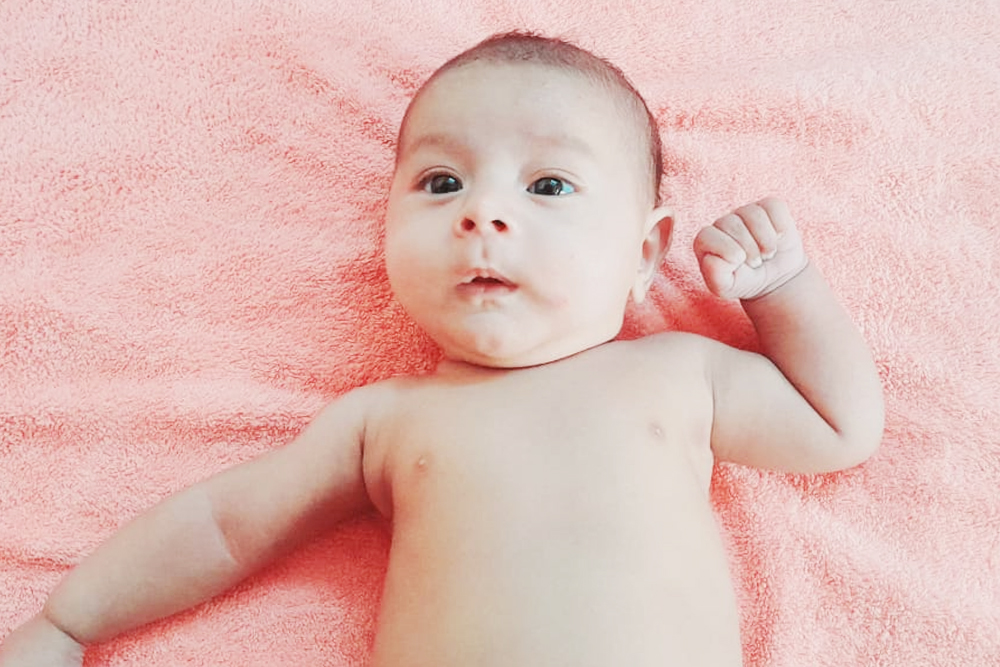Easy and useful tips to take care of your two-month-old baby
As a first-time mom, you may find the experience of taking care of your baby overwhelming, especially when they start getting energetic and moving about, which they typically do around the two-month stage. Here are a few tips, diet suggestions, and baby care tips that you are sure to find helpful.
If you are feeling worried that your baby is not doing much, don’t worry. Remember, they are still developing and adapting to the environment, and by the time they become two months old, the crib activity should begin to pick up.
Here are a few tips on how to take care of your 2 months old baby care
1. Identify And Take Care Of Sleeping Times
In the second month, infants tend to develop longer sleep periods. Watch sleeping patterns of your growing infant. Your baby can sleep anywhere between one to three hours during the day. Also, your two-month-old may exhibit tired signs at the end of their feeds or a half an hour after their feed. Total nine to twelve hours of sleep in 24 hours is normal for a two-month-old infant. So make sure your infant gets adequate sleep.
2. Growth
One of the main things that you need to keep an eye out for is the weight and height of your baby, so check it constantly to see if he is within the healthy height and weight range.
3. Encourage Your Baby’s Development
A two-month-old tends to develop better vision, grip and performs better hand and feet activities. Your baby tends to discover her hands and feet and keep them moving in the air. You can tie wrist rattles on your baby’s wrists and let them gaze at the color and sound of the rattle. Vision development occurs in the initial months of the birth, and you can encourage it with the help of colorful objects and soft toys.
4. Fulfill Increased Feeding Requirements
Your two-month-old child may exhibit increasing signs of appetite and demand feedings often. Usually, infants cry when they are hungry. Try to identify their needs and feed them whenever you find them crying. If you have been breastfeeding and have been offering breast milk of only one breast, you may need to start offering both breasts to feed your infant. Your baby may also demand to feed even at night or midnight.
5. Immunizations
Keeping abreast of the child’s immunization schedule is essential for optimum development. Take your infant to a child specialist and make sure that she is immunized right away. Chances are that your baby will act up on being immunized, so soothe him until he calms down. Do not push off the immunization to later but get it done right away – after all, your baby’s health is important, and naturally, you would want to do all you can to make sure that your infant is safe
6. Attend To Your Baby When She Cries
Two-month-old babies cry a lot, which can be distressing for you. Infants cry in the second month as the nervous system tends to mature, excitement due to stimulus, overtiredness, and for attention. So, whenever your baby crying, attend your baby and give her all you attention. Cuddle her, soothe her, or take her outside to calm her. This is how you can do for a two month child care.
7. Keep A Track Of Immunizations And Overall Health
Make sure you get your little one vaccinated properly. Take your baby to the doctor for regular health check-ups. Also, maintain clean and tidy surroundings so that your baby won’t catch any infection. Your infant’s hygiene should be a priority.
8. Adjust to the Baby’s Routine
It is important that you follow your baby’s sleep patterns closely and take rest when the child rests, otherwise, you would have to be up all the time, attending to your baby. Use a baby monitor so you know the exact moment your baby’s up.
9. Interact With Her
In the second month, your baby responds to loud and sudden noises. Watch her coo and throw her hands around on hearing a loud noise. Talk with your dear little one. Speak simple words or rhyming words so that your baby will recognize them and respond to them.
10. Keep Your Child Safe
Never leave your child on her change mat or the floor without any supervision. If you have pets at home, keep your baby away from them. Make sure your child has soft toys, which don’t have any sharp edges. Scan the place around your baby to ensure there is no sharp and harmful object lying around.
11. Staying safe
Provide your little one with lots of tummy time every day. If you have pets, you’ll need to keep them away from the baby, no matter how interested they may be. Never leave your baby unsupervised on their changing mat, on the floor, or in an unsafe place. They are still small and can be accidentally walked on. Make a point of scanning areas where you place them and look for small objects they could pick up. Toys need to be large, rounded, and soft, with no sharp edges.











